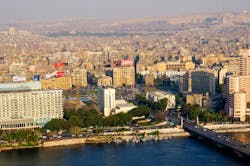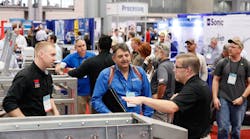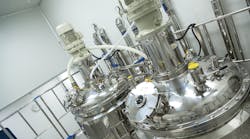Emerson Process Management will automate the world’s largest naphtha cracker plant, which will be constructed in Egypt’s Suez Special Economic Development Zone.
The company signed a $150 million contract with Egyptian petrochemical firm Carbon Holdings to provide automation and reliability technologies and services for its Tahrir Petrochemicals Project at Ain Sokhna.
Serving as main automation contractor, Emerson will design the plant for optimum availability and provide consulting services, equipment health monitoring and a reliability service center for ongoing local support.
Emerson will also make a preferred equity investment in Tahrir Petrochemicals.
“Investments of this size require us to select partners that have a long history of handling large, complex projects and the expertise to produce a reliable plant with dependable output,” said Basil El-Baz, chairman and CEO of Carbon Holdings, in a press release. “We chose Emerson for its proven ability to deliver a successful automation project that results in an efficient, high-availability operation.”
When completed, the $6.9 billion Tahrir project will be the largest petrochemical plant in Egypt and the largest naphtha cracker plant in the world. It will produce 1.5 million tonnes per year of ethylene that will then be further processed into polyethylene. Other major products produced at the complex will include propylene, polypropylene, hexene, butadiene, benzene and styrene, Emerson said.
The Tahrir Petrochemicals complex is designed to serve both local and export markets. Raw materials will be received and products shipped from the Gulf of Suez.


